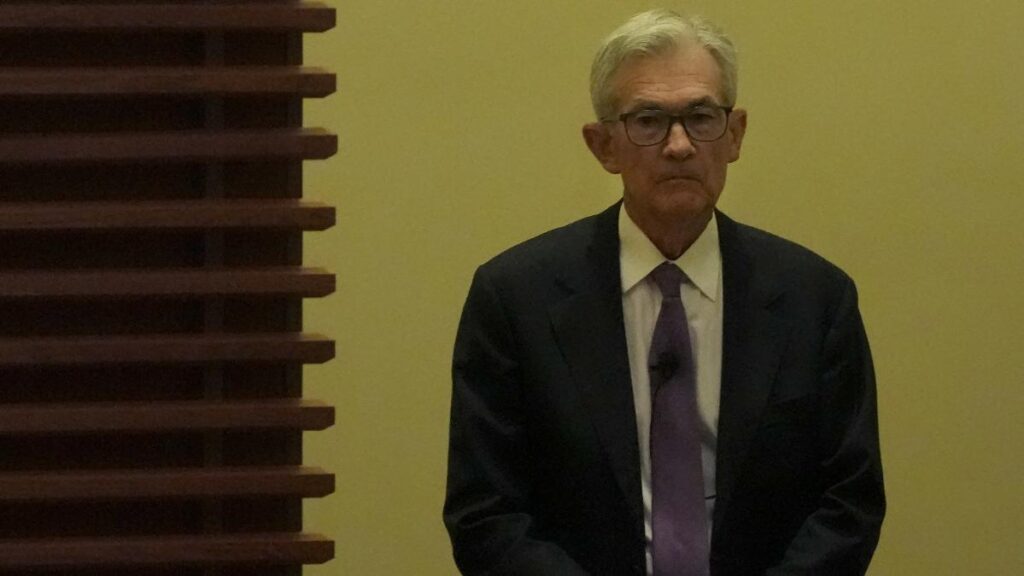Consumers, investors, and the market itself are all focused on the increasingly obvious presence of inflation in 2024, further increasing the focus on inflation. when The Fed will finally reverse course and start lowering rates.
Former Richmond Fed President Jeffrey Rucker spoke with Yahoo Finance about why he thinks the Fed is “going a little too far,” adding that if inflation continues, the agency “might not announce a rate cut this year.” Ta. all. “
“Policy needs to be sufficiently restrictive. The key to monetary policy is always to encourage people to slow down their spending in situations like this, because what causes inflation is more than the capacity of the economy.” Because it's overspending,” said Rucker, who is currently a senior affiliated researcher in the United States. Mercatus Center says. “We don't need to cut spending so much as to cause a recession, but we do need to rein in the economy enough. There are signs that Fed policy is not very restrictive now and is likely to be less so in the future.” Do your best to reduce inflation. ”
For more expert insights and the latest market trends, click here to watch the full episode of Market Domination Overtime.
This post was written by luke carberry morgan.
video transcript
Julie Hyman: Jeff, thank you so much for being with us. So everyone is trying to understand what the Fed is going to do. I'm sure everyone, including the Fed, is trying to figure out what they want to do. BlackRock's Rick Rieder previously told us that the Fed is hoping it can cut here. And probably cut it a few times. Do you agree with that assessment? And given recent data, could they cut back a few times?
Jeffrey Rucker: I agree that they seem intent on starting to cut rates. They seem to be in a position to do so for the first time. You can trust them to do that. But I think they're a little off on the skis. And I think they understand — they went a little overboard last year, but they're encouraging their view of rate cuts this year. And I think this recent inflation statistics over the past three months is a good reason to think they would have fared better if they had been a little more cautious last year.
It is plausible that inflation will take hold around here. This will be 3% to 4%. 3.5 to 4 in CPI. Probably 3 1/2 on the PCE core. And if these levels continue, it will be completely impossible to cut rates this year.
Josh Lipton: Mr. Jeffrey, what needs to happen to get inflation back on target? Does unemployment need to increase? Is that something that needs to happen?
Jeffrey Rucker: No, it's not. However, the policy must be sufficiently restrictive. The key to monetary policy is always this situation. They encourage people to slow down their spending because excessive spending beyond the economy's capacity causes inflation. There is no need to cut spending so much as to cause a recession. However, it must be well restrained.
And there are signs that Fed policy is likely to be less restrictive at this point. And it is not effective in controlling inflation. The way to think about this is that there is a real interest rate associated with an incentive for people to delay spending. Related to that, included in that calculation is the current rate of inflation. What SCP inflation will look like in the long run is different when inflation returns to 2%.
With current inflation at around 3.5%, I think there is good evidence that policy is not very austere at the moment.
Julie Hyman: Well, I think there's also always the eternal question of, even if policies aren't tightening as much right now, if they do tighten, how effective will they be? In other words, for example, when it comes to medical expenses and medical expenses, items that continue to see price increases may not be as affected by interest rate policy.
Jeffrey Rucker: Well, there are always some elements of the basket of goods that consumers and businesses buy that rise in price more quickly than others. Therefore, relative price changes always occur. However, the overall level of price is required. average. The value of money remains stable over time. And indeed, raising real interest rates may not reduce people's spending on health care. And the sense of how much health care prices are outpacing inflation may never fade.
But there will also be things that people will have to cut back on, and companies that will have to cut back on. Yes, given something, overall inflation will fall.


